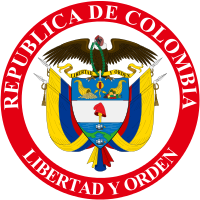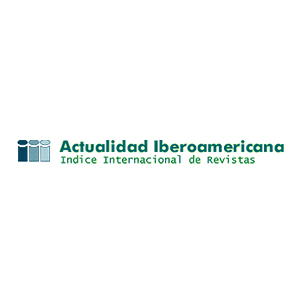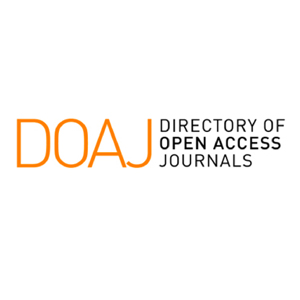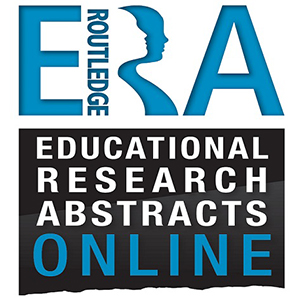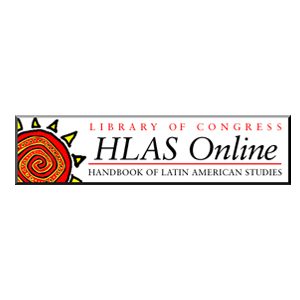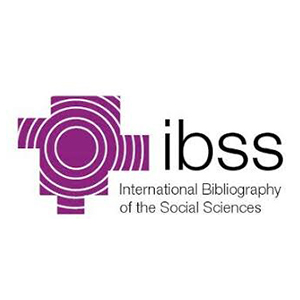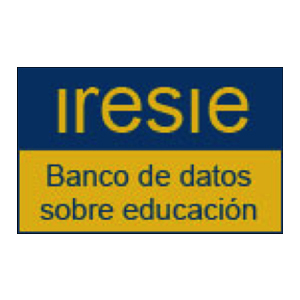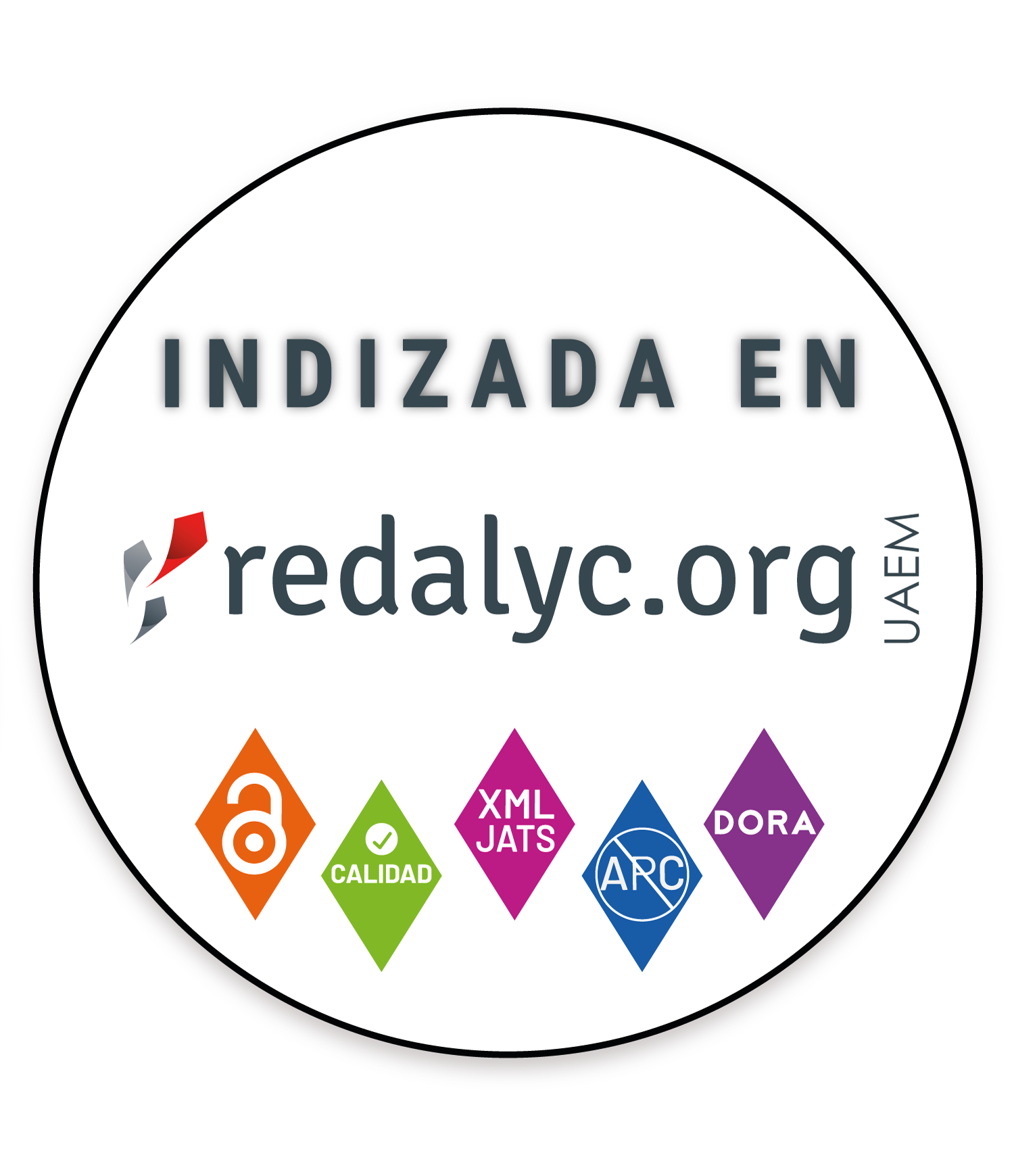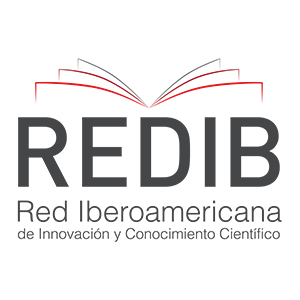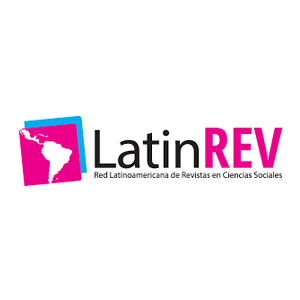Students’ Perspectives Concerning Intercultural Competence Development during their Academic Exchange Period
Perspectivas de los estudiantes acerca del desarrollo de la competencia intercultural en su programa académico de intercambio
Perspectivas dos alunos sobre o desenvolvimento da competência intercultural em seu programa de intercâmbio acadêmico
En este estudio de caso de abordaje cualitativo se plantea como objetivo general el análisis de perspectivas, por parte de los estudiantes, sobre la competencia intercultural y su desarrollo durante el programa de intercambio académico. El mercado laboral gradualmente más competitivo y globalizado requiere profesionales peritos desde el punto de vista intercultural. Basado en las perspectivas de los estudiantes procuramos analizar cómo se desarrolla la competencia en el periodo de intercambio. Las técnicas de recolección de datos empleadas fueron las entrevistas semiestructuradas y la observación participante. El análisis de datos siguió el análisis de contenido. Los resultados sugieren que la percepción de las diferencias culturales aumenta en los estudiantes, aunque sea necesario el desarrollo y mejoramiento de políticas institucionales de las universidades para la preparación de estrategias que promuevan el desarrollo de la competencia. Concluimos que la competencia intercultural es una herramienta fundamental en la Educación Superior y para el futuro profesional.
cultura, educación superior, educación multicultural, competencia, comunicación intercultural (es)
cultura, ensino superior, educação multicultural, competência, comunicação intercultural (pt)
Altshuler, L., Sussman, N. & Kachur, E. (2003). Assessing changes in intercultural sensitivity among physician trainees using the intercultural development inventory. International Journal of Intercultural Relations, 27, 387-401. DOI: https://doi.org/10.1016/S0147-1767(03)00029-4
Binder, N., Odag, O., Leiser, A., Ludders, L. & Kedzior, K. (2018). Student definitions of intercultural competence (IC)—Are they context-specific? European Journal of Educational Research, 7(2), 251–265. http://doi.org/10.12973/eu-jer.7.2.251 DOI: https://doi.org/10.12973/eu-jer.7.2.251
Bogdan, R. & Biklen, S. (1994). Investigação Qualitativa em Educação. Porto Editora.
Bolivar, A. (2008). Competencias basicas y ciudadania. Caleidocoscopio, 1, 13-33.
Coulby, D. (2006) Intercultural education: theory and practice. Intercultural Education, 17(3), 245-257. 10.1080/14675980600840274, http://www.tandfonline.com/doi/abs/10.1080/14675980600840274 DOI: https://doi.org/10.1080/14675980600840274
De Wit, H. (2002). Internationalization of higher education in the United States of America and Europe: A historical, comparative and conceptual analysis. Greenwood.
Diller, J. & Moule, J. (2005). Cultural Competence. Book News.
Fernández, M., Luna, E. & Eisman, L. (2014). Intercultural values education in Europe. A comparative analysis of Norwegian and Spanish reality. Procedia - Social and Behavioral Sciences, 132, 441–446. http://doi.org/10.1016/j.sbspro.2014.04.334 DOI: https://doi.org/10.1016/j.sbspro.2014.04.334
Fielding, M. (2007). Jean Rudduck (1937–2007) ‘Carving a new order of experience’: a preliminary appreciation of the work of Jean Rudduck in the field of student voice. Educational Action Research, 15(3), 323-336. http://www.tandfonline.com/doi/abs/10.1080/09650790701514234 DOI: https://doi.org/10.1080/09650790701514234
Guilherme, M. (2000). Intercultural Competence. In M. Byram (ed). Routledge Encyclopedia of Language Teaching and Learning. Routledge, 297–300.
Hammer, M., Bennet, M. & Wiseman, R. (2003). Measuring intercultural sensitivity: The intercultural development inventory. International Journal of Intercultural Relations, 27, 421-443. DOI: https://doi.org/10.1016/S0147-1767(03)00032-4
Hargreaves, A. (1994). Changing teachers, changing times: Teacher’s work and culture in post-modern age. Cassel.
Hawawini, G. (2011). Faculty & Research Working Paper—The Internationalization of Higher Education Institutions: A Critical Review and a Radical Proposal. http://ssrn.com/abstract=1954697%0A*
Knight, J. (1994). Internationalization: Elements and checkpoints (Research Monograph, 7). Canadian Bureau for International Education.
Knight, J. (2004). Internationalization remodeled: Definition, approaches, and rationales. Journal of Studies in International Education, 8(1), 5–31. http://doi.org/10.1177/1028315303260832 DOI: https://doi.org/10.1177/1028315303260832
Knight, J. & de Wit, H. (Eds.). (1997). Internationalization of higher education in Asia Pacific countries. European Association for International Education.
Lund, R. (2000). Intercultural Competence - an aim for the teaching in Norway? Acda Didactica Norge, 2(1)342–348. 10.5617/adno.1025
Maharaja, G. (2018). The impact of study abroad on college students’ intercultural competence and personal development. International Research and Review, 7. https://files.eric.ed.gov/fulltext/EJ1188735.pdf
Nieto, C. & Booth, M. Z. (2009). Cultural competence: Its influence on the teaching and learning of international students. Journal of Studies in International Education, 14(4), 406–425. DOI: https://doi.org/10.1177/1028315309337929
Peng, S. (2006). A comparative perspective of intercultural sensitivity between college students and multinational employees in China. Multicultural Perspectives, 8, 38–45. DOI: https://doi.org/10.1207/s15327892mcp0803_7
Risager, K. 2007. Language and culture pedagogy. From a national to a transnational paradigm. Multilingual Matters. DOI: https://doi.org/10.21832/9781853599613
Simensen, A. M. (2003) Interkulturell kompetanse: Hvordan skal det forstås? Er det en målsetting spesielt for fremmedspråkfagene? Språk & Språkundervisning, 2, 5–9.
Stone, N. (2006). Conceptualising intercultural effectiveness for university teaching. Journal of Studies in International Education, 10(4), 334-356. 10.1177/1028315306287634, http://jsi.sagepub.com/cgi/doi/10.1177/1028315306287634.
Tuckman, B. (1978). Conducting Educational Research. Harcourt Brace Jovanovich.
APA
ACM
ACS
ABNT
Chicago
Harvard
IEEE
MLA
Turabian
Vancouver
Descargar cita
Citaciones

Métricas PlumX
Visitas
Descargas
Recibido: 30 de diciembre de 2018; Aceptado: 12 de febrero de 2020
Abstract
In this case study with a qualitative approach we aim to analyze perspectives of students on the intercultural competence and its development during their academic exchange period abroad. The increasingly competitive and globalized labor market requires knowledgeable professionals from an intercultural point of view. The techniques to collect data were semi-structured interviews and participant observation. Data analysis procedures followed content analysis. The results suggest that the perception of cultural differences increases in students, although the development and improvement of institutional policies of universities is necessary for the preparation of strategies that promote the development of said competences Conclusions point towards the increased relevance that intercultural competence represents on Higher Education nowadays and on future professionals.
Keywords:
culture, higher education, multicultural education, competence, intercultural communication.Resumen
En este estudio de caso de abordaje cualitativo se plantea como objetivo general el análisis de perspectivas, por parte de los estudiantes, sobre la competencia intercultural y su desarrollo durante el programa de intercambio académico. El mercado laboral gradualmente más competitivo y globalizado requiere profesionales peritos desde el punto de vista intercultural. Basado en las perspectivas de los estudiantes procuramos analizar cómo se desarrolla la competencia en el periodo de intercambio. Las técnicas de recolección de datos empleadas fueron las entrevistas semies-tructuradas y la observación participante. El análisis de datos siguió el análisis de contenido. Los resultados sugieren que la percepción de las diferencias culturales aumenta en los estudiantes, aunque sea necesario el desarrollo y mejoramiento de políticas institucionales de las universidades para la preparación de estrategias que promuevan el desarrollo de la competencia. Concluimos que la competencia intercultural es una herramienta fundamental en la Educación Superior y para el futuro profesional.
Palabras clave:
cultura, educación superior, educación multicultural, competencia, comunicación intercultural.Resumo
Neste estudo de caso com abordagem qualitativa, propõe-se como objetivo geral a análise de perspectivas, por parte dos alunos, sobre a competência intercultural e o seu desenvolvimento durante o intercâmbio académico. O mercado de trabalho cada vez mais competitivo e globalizado exige profissionais capacitados do ponto de vista intercultural. A partir da perspectiva dos alunos, buscamos analisar como a competência se desenvolve no período de intercâmbio. As técnicas de coleta de dados utilizadas foram entrevistas semiestruturadas e observação participante. A análise dos dados seguiu a análise de conteúdo. Os resultados sugerem que a percepção das diferenças culturais aumenta nos alunos, embora o desenvolvimento e o aprimoramento das políticas institucionais das universidades sejam necessários para a elaboração de estratégias que promovam o desenvolvimento de competências. Concluímos que a competência intercultural é uma ferramenta fundamental no Ensino Superior e para o futuro profissional
Palavras-chave:
cultura, ensino superior, educação multicultural, competência, comunicação intercultural.Introduction
It is established that intercultural competence (ic) is a pivotal competence for the exercise of complete citizenship and for the success in the globalized labour market. (Binder, et al. 2017; Maharaja, 2018) Several pathways to develop (ic are incorporated into Higher Education Institutions (HEI'S) on different levels. However, in Europe, ic is perceived as a soft-skill that is developed throughout the academic course. Therefore, ic is embed into the curricula.
In order to establish a course for this research we identified definitions and/or concepts of ic. Diverse authors establish definitions for ic (Bolivar, 2008; Diller & Moulle, 2005; Hammer et al., 2003; Nieto & Booth, 2009; Stone, 2006), which approach several fields of education, allowing the perception that the definition and concrete conceptualization of this construct is difficult.
Lund (2008) advocates that ic is difficult to define, and the current attention drawn to this subject due to intercultural encounters and their consequences increased the pressure for a concrete definition. Simensen (2003) states that ic is a cliché secondary to its globalized use. However, no one really seems to understand the full meaning of it. Hence the demand to establish a pathway to evaluate the competence based on the academic hope this will lead to a concrete and definite concept.
Taking into account this difficulty to define ic, and on the search to best apply the concept to students and their contexts, the authors decided to utilize the following definition: an individual that knows and takes into consideration global issues and perceives himself or herself as a world citizen instead of a particular nation (Risager, 2007).
Higher Education Institutions and Globalization
The European society is changing. Immigration and emigration show a constellation of cultural backgrounds, and the constitution of the same society is diverse (Fernández et al., 2014). This setting is not present only in Europe, but also in different parts of the globe where the movement of people is increasing.
It is important to document the concepts utilized in this study regarding these two phenomena which mark and characterize the societies. As these concepts are used on a daily basis-whether connected or not-, it tends to lead to confusion and mischaracterization. Therefore, it is pivotal for a clear narrative to use the definition according to the purpose.
Globalization, due to the influence on the settings where HEI'S operate, is defined as: "the flow of technology, economy, knowledge, people, values and ideas across borders" (Knight & de Wit, 1997, p. 6).
Internationalization can be approached from different perspectives, and can be used in several contexts. It may represent different international activities, such as academic mobility, projects and/or international academic programs and research joint ventures, or the possibility to franchise the university with campuses abroad. It may refer to the inclusion of interculturality and global dimension into the curricula, or the increasing demand for trade in academic international development projects (Knight, 2004). Several authors have defined internationalization (i. e., Soderqvist, 2002; de Wit, 2002), and for this study we decided to use the following definition: "process of integrating an international and intercultural dimension into teaching, research and service functions of the institutions" (Knight, 1994, p. 7). This definition approaches the numerous dimensions of the contexts, and where it can be applied on each setting where the university develops its activity.
Internationalization is a process involving all academic branches. However, its implementation has posed some difficulties. Therefore, the institutional implementation of strategies for the development of ic among students has decreased. Hawawini (2011) argues that faculty's lack of interest, the weakening of HEI'S reputation due to internationalization, and higher costs of this process are some of the obstacles faced by HEI'S.
Intercultural Competence
Intercultural competence has been defined by several authors. Some of them advocate the term as cultural competence. According to Bolívar (2008), cultural competence gathers the ability and capacity to appreciate and understand from a critic perspective different cultural and artistic events, and apply them as knowledge and to improve personal opportunities.
Previous authors define cultural competence as "[a] set of congruent behaviours, attitudes, and policies that come together in a system, agency, or among professionals and enable that system, agency, or those professionals to work effectively in cross-cultural situations" (Diller & Moule, 2005, p. 12).
On an academic/teaching level, cultural competence is defined as the "ability to successfully teach students who come from different cultures other than your own" (Diller & Moule, 2005, p. 2). Hammer et al. (2003), state that cultural competence is the "ability to discriminate and experience relevant cultural differences" (p. 422).
Regardless of the definition you adhere to, cultural competence requires interaction among individuals from different cultural backgrounds, committed to engage onto the task of promoting intercultural competence: "hence, the ability to be culturally competent is central in increasing understanding and improving relationships across cultures" (Nieto & Booth 2009, p. 3). Peng (2006) shows that to develop intercultural competence the individuals must be willing to understand and appreciate differences among cultures. Altshuler et al. (2003) identify this intercultural awareness as an attitudinal precedent to successful intercultural encounters and a measure to predict cultural competence.
In this study, we will follow Guilherme's definition of ic: the skill to interact effectively with people from different cultural backgrounds that we recognize as different from our own culture (2000).
Students' Voices
Students' voices are a powerful tool to understand and find new ways to develop education practices and to explore different perspectives and insights about the quality of our education systems (Hargreaves, 1994, p. 25). Consequently, student's voices had to be heard throughout this research if we wanted to understand in situ whether intercultural competence is developed or just forgotten within a multicultural non-interaction. No other sources of information were clearer and directly implied and committed within the context than international students.
Student's voices give us insights on how international relations might become, since they represent the very early stages and informal contexts of intercultural encounters. Fielding (2007) reveals the importance of student's opinions: "interestingly, and importantly from the vantage point of the current work in student voice, [...] reminds us of the immense powerful conservatism of student [... ] learning cultures in classrooms" (p. 323).
The participants represent a holistic insight due to their immense and unique involvement with the context. After all, they are international students studying abroad. Furthermore, they represent part of the international context that allows the development of intercultural competence.
Methods
Bogdan and Biklen (1994) identify cultural studies as social studies that emphasize the relevance of qualitative data and allow the process of understanding social structure and human interaction.
Due to the nature of the research and the phenomenon being studied, we followed a qualitative approach. The research question for this study was: How is intercultural competence perceived by international students?
Cultural studies establish that social relations are influenced through power relations. The hierarchy of power relations should be perceived according to the participants' perspective and interpretation of the context they are in (Bogdan & Biklen, 1994).
The techniques to gather data were semi-structured interviews, participant observation, field notes and the analysis of official documentation. The sources of data were the students' discourse during the semi-structured interviews. The participants provided written informed consent, and agreed to participate on the study by being interviewed through individual semi-structured interviews, all conducted in English. The interviews were held during two sessions, held in the afternoon, at the International Affairs and Mobility Office of the host HEI. Following Tuckman, "Procedures for conducting an interview may differ from those involved in obtaining data by questionnaire, but the aim is the same: to obtain the desired data with the maximum efficiency and minimum bias" (1978, p. 237).
Participants (n = 10) were randomly elected. The first contact was made when the student required assistance at the International Affairs and Mobility Office of the host HEI. The elected participants were ten international students (both European and non-European), under Lifelong Learning Program (regardless of the subprogram) studying at a Portuguese university at the time of the research. Six participants were male and four were female. All were pursuing a graduate degree (either Master or PhD) on different areas of knowledge, ranging from Social Sciences to Applied Mathematics. Two participants were from Kazakhstan and other two from Iran. The remaining nationalities were: Lesotho, Ukraine, Russia, Philippine, Nigeria, and Ethiopia.
The semi-structured interviews consisted in a questionnaire designed to grasp the participants' notion about cultural competence, to reflect upon their academic exchange period and about the obstacles and/or difficulties faced during the academic mobility period. Students were informed that the information they provided was confidential, and every data was categorized and coded for further content analysis.
Research field notes were taken during class sessions, interviews and informal conversations held with the participants. Official documents consulted contained data about the goals and aims of academic mobility exchange programs and European Education policies for forthcoming years. A content analysis was undertaken after the creation of categories and triangulation of sources and data collection techniques.
Results
The authors identified three categories after analyzing the content of the participants' input: 1) student's perspectives concerning intercultural competence; 2) cultural adaptation: difficulties and obstacles.
Category 1-Student's Perspectives on Intercultural Competence
Participants/students gave broad definitions and perspectives of what intercultural competence means for them. This has a special impact during their academic period abroad, when they are immersed in a different culture, country and region. Those definitions ranged from being able to make friends with individuals from different cultural backgrounds, to accepting and adopting different cultures. You may think that this definition may rise acculturation. However, the participants that expressed this feeling also showed that accepting different cultures is not necessarily losing or diminishing your own.
The interaction between us developed a relation of friendship because we understood each other differences. [...] I can call it cultural competence and I developed during this process. (Student B)
Cultural competence for me is your ability to understand your culture and others. If you understand your culture you can communicate with others and learn with them. Without understanding yours first, it's impossible. It is also the know how to manage with different people and learn how to deal with judgement, misunderstandings and negative attitudes upon other cultures. It is a flexible attitude. (Student JA)
The differences that we are trying to know and comprehend aren't only features; they're also unique characteristics of each one individual and each culture. I believed that I've developed my cultural competence due to the simple fact that I've interacted with them and I've learned a lot in that interaction. (Student A)
The input from these students also involved a reflective stage on their own culture. To think twice about relevant features of a different culture, first of all you need to understand your own culture and reflect upon your own cultural features. It is also relevant to demonstrate de importance of multicultural encounters as means to develop intercultural competence. An increased awareness concerning the concept/definition of intercultural competence promotes the development of culturally competent individuals. Either on a social or professional level, this capability, or competence, reduces the potential sources of conflict, and the probable causes of decreased professional production.
Category 2-Cultural adaptation: Difficulties and obstacles
Regarding the difficulties and obstacles that the participants experienced abroad, the opinions are divided between experiencing no difficulties and facing several obstacles. Students identified the lack of an institutional policy addressed to prepare the university to receive international students (to administer language assessments and lessons, and to expedite administrative issues), and stated coping mechanisms to overcome those obstacles.
Previous knowledge of the country and specific place where you spend your academic exchange period abroad is important to lower anxiety and cultural shock. For instance, participant A states that he experienced some difficulties just before the departure:
I do have to state that in the last month before departure I felt a bit exhausting due to the procedures concerning visa and everything. No anxiety but exhausted during every procedures.
Participant K affirmed that his previous experiences in Portugal helped him during the process of adaptation, although at the beginning he faced some difficulties.
While some of the participants stated that they had no difficulties to adjust themselves to the country, university and city, others stated that they faced obstacles in daily activities and in the academic and social settings. "Adaptation process was not that difficult." (Participant JA).
According to student B, regardless any previous experiences abroad, international students are all in the same position. That helps to overcome obstacles, because they develop a group identity:
In the beginning was stronger between international students. We were all in the same situation and that created a group identity that we had to interact to solve problems that were common to everyone. The interaction to Portuguese guys was more difficult because I felt I was a bourdon to the class. [...] later on I understood why. I was treated on a different way because I was foreigner (I was the first foreigner at that class, and that's why). It wasn't bad or good the way, was just different and correct somehow.
According to participant M, the relation with teachers, the communication gap and some administrative issues were the difficulties faced along the adaptation period:
The communication gap was the biggest obstacle to planning everything correctly, because when you leave your country you have an idea of how things are, and normally, they are pretty different at your arrival.
The relation with teachers was tricky at the beginning because there were no procedures realized and prepared to solve some administrative issues. Language improvement is needed.
The information gathered points towards a deep need for policy improvement and institutional involvement in the process of intercultural development at language, social (accommodation, overall atmosphere, and safety), and academic levels (evaluation system, joint classes, language competence, and teacher involvement). Even though students were pointing out features that should be improved, their body language (relaxed, seated on a comfortable position during the interview and willing to participate), and their suggestions to approach non-academic topics (social life) evidence that their adjustment to the academic context was successful and they felt safe enough to share their views. This information was gathered through a research diary and field notes. After triangulating this information with the data obtained during the interviews, we could infer that international students' voice on the difficulties they go through is relevant, and it is advisable to design an assessment system to get their feedback on this issue.
Conclusion
Participants in this study showed how their perspective on intercultural competence and on their own academic exchange period abroad may provide knowledge to understand the way the relations between students on this specific context are being established. Kim (2009) states that interculturalism cannot be taught on a classroom. However, intercultural competence awareness promotes the desire for intercultural encounters that are necessary to develop this competence. In line with several authors that study intercultural competence and/or its role on education (Bolívar, 2008; Diller & Moule, 2005; Hammer et al. 2003), this research leads us to conclude that institutional policies (staffing assessment, effective intercultural communication workshops, etc.) are necessary in order to create an appropriate environment for the development of intercultural competence. Additionally, we identified the need to establish sessions addressing language and intercultural competence outside the curriculum, as an autonomous subject. Coulby (2006) states that if education is not intercultural, then it is just the inculcation of nationalism and dominant culture.
The participants in this study describe their perception of ic in different and broad ways. One would say that their perception is linked with their interaction/cooperation (academic or not) with national students, or solely social context and meetings (outside the university) where support network and friends are pivotal to discover new coping mechanisms when in distress. Or even only on an academic setting, where grades are extremely relevant within an increasing demanding labor market. Nevertheless, they are not so different from the definition proposed by Guilherme (2000)
Licencia
Derechos de autor 2020 Revista Colombiana de Educación

Esta obra está bajo una licencia internacional Creative Commons Atribución-NoComercial 4.0.
Todo el trabajo debe ser original e inédito. La presentación de un artículo para publicación implica que el autor ha dado su consentimiento para que el artículo se reproduzca en cualquier momento y en cualquier forma que la Revista Colombiana de Educación considere apropiada. Los artículos son responsabilidad exclusiva de los autores y no necesariamente representan la opinión de la revista, ni de su editor. La recepción de un artículo no implicará ningún compromiso de la Revista Colombiana de Educación para su publicación. Sin embargo, de ser aceptado los autores cederán sus derechos patrimoniales a la Universidad Pedagógica Nacional para los fines pertinentes de reproducción, edición, distribución, exhibición y comunicación en Colombia y fuera de este país por medios impresos, electrónicos, CD ROM, Internet o cualquier otro medio conocido o por conocer. Los asuntos legales que puedan surgir luego de la publicación de los materiales en la revista son responsabilidad total de los autores. Cualquier artículo de esta revista se puede usar y citar siempre que se haga referencia a él correctamente.

